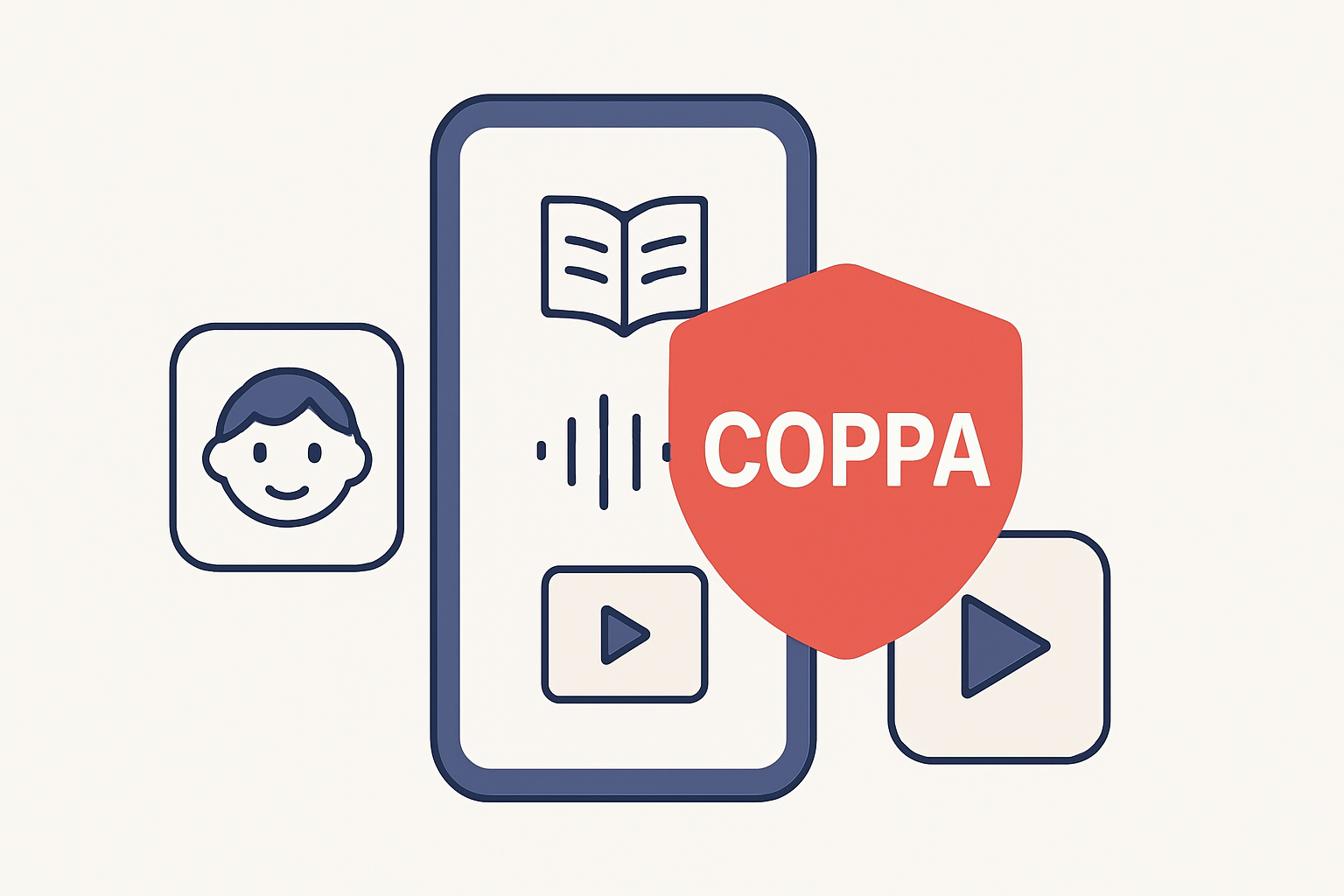Understanding COPPA: What Kids’ Content App Creators Need to Know

Many app creators run into challenges when it comes to COPPA compliance. Building applications for children requires a deep understanding of how data is collected, stored, and used, especially when the target audience is under 13. COPPA, the Children’s Online Privacy Protection Act, is the central piece of legislation that governs these rules in the United States. For developers and publishers working within kids’ content, compliance isn’t optional—it’s a fundamental requirement.
Ignoring COPPA can result in severe legal and financial consequences, while full compliance can significantly increase trust from parents and caregivers. Platforms like Audiorista provide solutions built to align with digital safety standards, giving creators a way to develop and launch apps without losing focus on compliance. Audiorista’s no-code platform enables you to create, customize, and launch kids’ content apps while embedding privacy and safety features directly into the user experience. In this article, we’ll explore what COPPA means for kids’ content apps, the key rules you need to know, how to avoid risks, and what the future holds for this growing industry.
Understanding COPPA compliance
The Children’s Online Privacy Protection Act (COPPA) is a U.S. federal law designed to protect the online privacy of children under the age of 13. It sets specific requirements for online services—including mobile applications—that collect information from young users. This law, enforced by the Federal Trade Commission (FTC), mandates that developers and businesses follow strict guidelines when requesting or handling children’s personal data.
For kids’ content apps, COPPA has significant implications. Developers must not only limit how they gather and process data from under‑13 users, but they must also establish clear procedures to gain parental consent. Transparency in data practices is mandatory, and apps that fail to meet these obligations risk both reputational damage and regulatory penalties.
Key regulations for app developers
COPPA lays out clear rules that kids’ content app developers must follow. These regulations touch nearly every aspect of app design and data management processes, from initial user registration through long‑term data storage. Key requirements include:
Data collection restrictions: Apps cannot secretly harvest information from children. All collection activities must be necessary, minimal, and disclosed upfront. Hidden data gathering is explicitly prohibited under COPPA standards.
Parental consent: Before any personally identifiable information is collected from a child, parental approval must be obtained. This typically involves direct notice to parents and a verifiable consent mechanism.
Privacy policy obligations: Developers must provide a comprehensive and clear privacy policy that describes what information is collected, how it is used, and whether it is shared. This policy must be publicly available and easily understandable to parents.
What not to do: Apps must avoid hidden tracking technologies, collecting location data without notice, or failing to inform parents about third‑party partners. Skipping parental consent forms or burying critical data practices in fine print is a direct violation of COPPA.
The risks of non-compliance
The risks of ignoring COPPA are considerable. The Federal Trade Commission has consistently penalized companies that fail to implement proper protections for children’s data, issuing multi-million‑dollar fines in some cases. Non‑compliance isn’t just about immediate financial consequences—developers can also face forced app shutdowns, blacklisting from app stores, and long‑term brand damage.
On the positive side, developers that adhere to COPPA can turn compliance into a competitive advantage. Parents are increasingly discerning when choosing apps for their children. Clear protections and transparent practices help app makers stand out in an overcrowded marketplace. Compliance, therefore, isn’t just a matter of avoiding fines; it’s a direct path to building trust and strengthening customer relationships.
How to build safer COPPA-compliant apps
Ensuring COPPA compliance doesn’t need to be overwhelming if it’s built into the development process from the beginning. Best practices start with implementing privacy‑first design principles. This means asking only for the minimal amount of data required, keeping parental consent workflows central to user onboarding, and maintaining detailed documentation of compliance steps.
The privacy policy is crucial in this process. A transparent, well‑written policy that clearly outlines how the app operates, what data it collects, and how it’s stored or shared can prevent miscommunication and protect developers from regulatory exposure.
Using app builder for kids solutions like Audiorista also helps creators take compliance considerations into account from day one. Audiorista’s platform is designed with children’s privacy in mind, offering customizable privacy policy templates, parental consent management tools, and secure data handling features. These built-in safeguards minimize risk and simplify compliance workflows for creators launching kids’ content apps.
Future trends in kids’ apps and privacy
The future of kids’ apps is being shaped by increasing concerns about online safety and data protection. COPPA has established a foundational model, but international variations and evolving expectations continue to influence regulatory landscapes. As digital engagement among children grows, new measures are likely to emerge that further limit excessive data collection and enhance parental oversight.
There is increasing demand for safe, educational, and transparent apps in the children’s media space. Parents want assurance that products are designed with safety first. Creators who anticipate regulatory updates and reinforce transparent design will maintain an edge. The key for 2024 and beyond will be to prepare for stricter requirements, aligning operations with safety best practices from the ground up. You can find strategies for aligning with these expectations by reviewing resources such as Audiorista’s content app planning guide that covers what creators should prepare for as the industry evolves.
Ready to create a kids’ content app that parents trust and kids love? Start building with Audiorista today and ensure compliance from day one.


